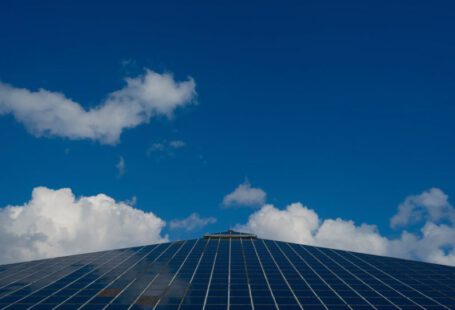Harnessing the Power of Solar Inverters
The world is increasingly turning towards renewable energy sources to combat climate change and reduce dependency on fossil fuels. Among these sources, solar energy stands out as a promising solution due to its abundance and sustainability. Solar panels are becoming a common sight on rooftops and in large-scale solar farms, converting sunlight into electricity. However, to fully utilize this solar power, an essential component is needed – the solar inverter.
The Heart of Solar Energy Systems
Solar inverters play a crucial role in solar energy systems by converting the direct current (DC) generated by solar panels into alternating current (AC) that can be used to power homes, businesses, and the grid. This conversion is necessary because most electrical appliances and the grid operate on AC power. Without a solar inverter, the electricity generated by solar panels would be unusable.
There are two main types of solar inverters: string inverters and microinverters. String inverters are connected to multiple solar panels in a series, while microinverters are attached to individual solar panels. Each type has its advantages and considerations, depending on the size and layout of the solar energy system.
Efficiency and Monitoring
One of the key advantages of solar inverters is their role in maximizing the efficiency of solar energy systems. By converting DC to AC power effectively, solar inverters ensure that the electricity generated by solar panels is optimized for use. This efficiency is crucial for maximizing the return on investment in solar energy systems.
Moreover, solar inverters often come equipped with monitoring capabilities that allow users to track the performance of their solar energy system in real-time. Monitoring data, such as energy production and system status, can help users identify issues, optimize performance, and ensure that their solar energy system is operating at its full potential.
Grid Connectivity and Energy Independence
Solar inverters also enable solar energy systems to connect to the grid, allowing users to sell excess electricity back to the grid through net metering programs. This grid connectivity not only provides a way to offset electricity costs but also supports the overall stability and reliability of the electrical grid by integrating renewable energy sources.
Furthermore, solar inverters contribute to energy independence by reducing reliance on traditional energy sources. By generating clean and renewable electricity from the sun, solar energy systems with inverters help reduce greenhouse gas emissions and mitigate the impacts of climate change.
Innovations and Future Prospects
As the demand for solar energy continues to grow, so does the need for advanced solar inverter technologies. Manufacturers are constantly innovating to improve the efficiency, reliability, and functionality of solar inverters. Some of the latest developments include hybrid inverters that can integrate solar energy with energy storage systems, as well as smart inverters that offer enhanced communication and control capabilities.
Looking ahead, the future of solar inverters is promising, with advancements in power electronics, digitalization, and connectivity driving new possibilities for solar energy systems. These innovations will further enhance the role of solar inverters in enabling a sustainable energy future.
In conclusion
Solar inverters are the unsung heroes of solar energy systems, playing a vital role in converting sunlight into usable electricity. With their efficiency, monitoring capabilities, grid connectivity, and contribution to energy independence, solar inverters are indispensable components of the transition towards a clean and sustainable energy future. As technology continues to evolve, solar inverters will continue to drive the growth of solar energy and pave the way for a brighter tomorrow.





